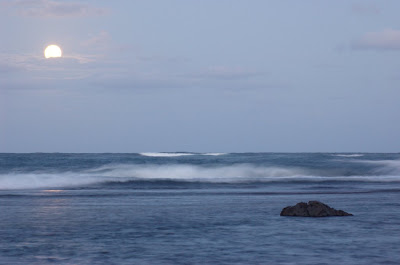 |
| http://www.sxc.hu/photo/999876 |
When I was a child, we used to go, not to the “beach,” but
to the “coast.” I've always thought going to the coast implied something
different from going to the beach. Go to the beach and the sun shines and you
stroll on the sand. Go to the coast and you sidle right up to the edge of the
world.
It's a radical journey, getting back to the roots of things,
of relationships, leaving all the unnecessary trappings of civilized life
behind. It's a wild and daring adventure. Or at least it used to be.
When I was about four, I remember arriving late at night,
and my family, all six of us, joined hands and slogged into the moon-scribbled
surf. Later, Dad turned his pockets inside out looking for his car keys. Not finding them, he summoned a mechanic who shattered the driver’s side window of
our locked Buick and hot-wired the ignition. High drama for a four-year-old.
At the coast you couldn’t drink the water out of the tap—or
at least you wouldn't want to—so we'd drive someplace inland to fill large
bottles from an artesian well. We didn’t require air conditioning because we
had only one window unit at home in the living room—and we never turned it on
except on the sultriest Fourth of July or when company came.
At the coast my sometimes high-strung father became loose
and laughing. He worked hard all his life, but he sure knew how to have a good
time. In burger joints or seafood restaurants, he’d chuckle and say “Get
whatever you want.” And believe me, we did! When I’d go fishing in Cotton Bayou with my older
brother, Dad would pay me a nickel for every fish I caught—the same fish more
than once, no doubt, because I threw them all back. Then with the proceeds I’d buy comic books at
Sunnyland Grocery.
Only at the coast could Sunnyland have been called a
grocery. True, it sold bacon and eggs, and milk and bread, but alongside
plastic pink flamingos, floats, fishing tackle, ice, stale bagged peanuts to
put in your Coke, and—let’s see—ethyl at about twenty-nine cents a gallon.
Nowadays, you can go to any number of beaches, all with high
rise condos and luxuries you couldn’t (or wouldn't want to) afford even at more
reasonable prices at home. I suspect that most people have never had a real
vacation. Going to the beach is one thing. Going to the coast is another.
If the coast even exists—if it wasn't just a figment of my
childhood imagination—then I don't know where to look for it anymore.





